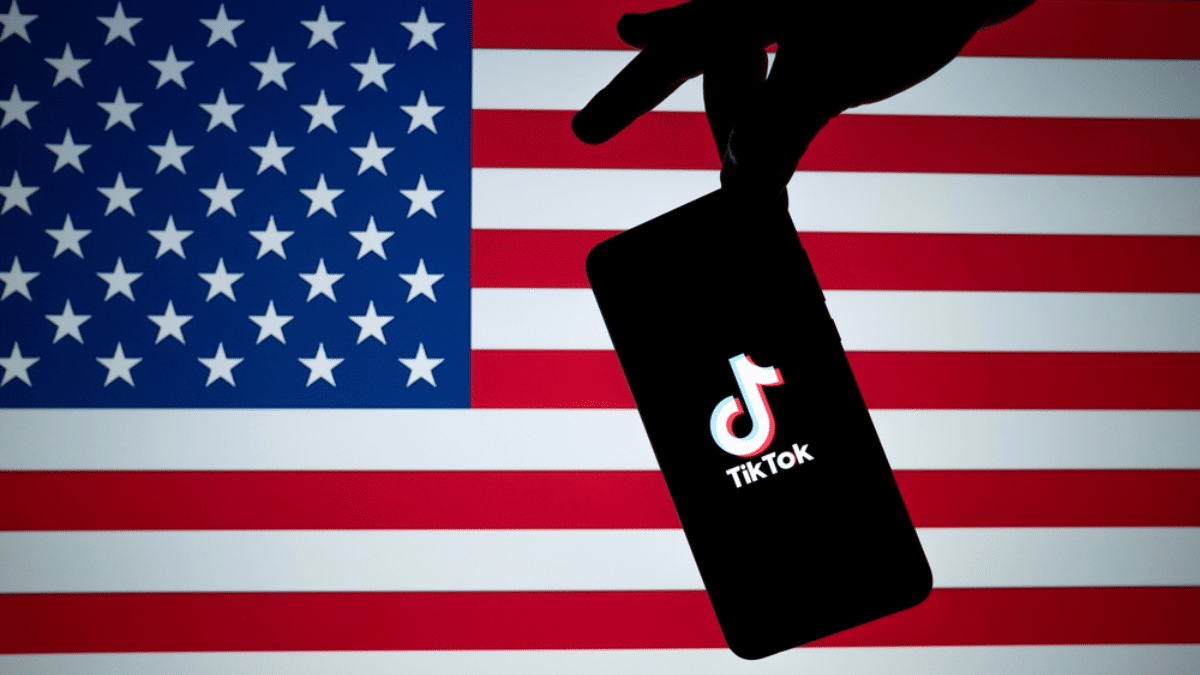A TikTok Ban Timeline: From Rapid Passage to Truce With Trump
Tim Bernard / Jan 28, 2026This timeline was first published on April 1, 2025, and was updated intermittently until January 27, 2026.
Last April, Congress passed legislation forcing TikTok’s Chinese owner, In April 2024, Congress passed legislation forcing TikTok’s Chinese owner, ByteDance, to divest from the app or face a US ban. The companies asked the courts to strike down the law, known as the Protecting Americans from Foreign Adversary Controlled Applications Act. But the Supreme Court upheld the measure on January 17, 2025, just two days before the ban was set to take effect and three days prior to Donald Trump’s inauguration as US president.
While TikTok briefly went dark before Trump’s swearing in, he repeatedly halted enforcement of the law while his administration sought to broker a deal to stave off a ban for good. Those efforts eventually secured the popular video-sharing app’s survival in the US, where it has developed a massive following despite national security concerns from public officials.
Here is a timeline of these events, starting from the law’s passage and ending with the qualified divestment of key elements of TikTok's US operations to a new entity in early 2026.
2024
April 20-24
- Both chambers of Congress overwhelmingly pass the Protecting Americans from Foreign Adversary Controlled Applications Act as part of HR 815, a national security and foreign aid spending bill, and President Biden signs it into law. It gives ByteDance 270 days — or until January 19, 2025 — to sell the platform. If not, app stores and other digital service providers must cease making the app available or face steep fines.
May 7
- ByteDance and TikTok challenge the law in federal court. A week later, a group of TikTok creators file their own lawsuit. The groups allege the law violates their constitutional free speech rights.
September 16
- The US Court of Appeals for the DC Circuit holds oral arguments in TikTok, Inc. v. Garland. The Biden administration argues in defense of the law. Judges appear skeptical of TikTok’s arguments against the measure.
December 6
- The Court of Appeals rules for the government, upholding the law as constitutional. This leaves the Supreme Court as TikTok's last hope to defer or strike down the sale-or-ban law in court.
December 18
- The Supreme Court agrees to take up and expedite the case.
December 19
- Sens. Ed Markey (D-MA) and Rand Paul (R-KY) pen a letter to then-President Joe Biden urging him to grant ByteDance a one-time 90-day extension to sell TikTok, a right afforded the president under the ban-or-sale law.
2025
January 10
- The Supreme Court holds oral arguments in the appeal of the lower court’s ruling.
January 14-15
- Markey and other Democratic lawmakers announce legislation to give ByteDance 270 more days to sell TikTok before a ban takes effect. Sen. Tom Cotton (R-AK), chair of the Senate Intelligence Committee, blocks the extension bill the following day.
January 15-16
- According to multiple press reports, Biden administration officials signal that the president does not plan to invoke the one-time extension, but that enforcement of the potential Jan. 19 ban will fall to the incoming Trump administration.
January 17
- The Supreme Court releases its decision on TikTok’s bid to enjoin the law, upholding the constitutionality of the Protecting Americans From Foreign Adversary Controlled Applications Act. The ban is now slated to take effect on Jan. 19.
- Then-White House press secretary Karine Jean-Pierre issues a statement reiterating that “actions to implement the law must fall to the next Administration.” Deputy Attorney General Lisa Monaco, whose department is poised to enforce the law, says in a statement that implementation of the law “will be a process that plays out over time.”
- TikTok says in a statement that the Biden administration’s remarks “failed to provide the necessary clarity and assurance” to stave off a ban and that the app will go dark on January 19 absent “a definitive statement to satisfy the most critical service providers assuring non-enforcement.”
January 18
- President-elect Donald Trump tells NBC in an interview that he will “most likely” give TikTok an additional 90 days to divest before enforcing the ban. During the presidential campaign, Trump repeatedly said he wanted to “save” TikTok, without elaborating how.
- TikTok notifies users that it will become unavailable in the US due to the law coming into effect via in-app pop-up messages.
- A couple hours before the ban officially takes effect, the app begins to go dark in the US.
January 19
- TikTok becomes unavailable for updates in app stores run by Google and Apple, and TikTok in-app content becomes largely inaccessible, with a pop-up message on the site praising the incoming Trump administration for pledging to broker a “resolution."
- Trump posts on Truth Social:
“I’m asking companies not to let TikTok stay dark! I will issue an executive order on Monday to extend the period of time before the law’s prohibitions take effect, so that we can make a deal to protect our national security. The order will also confirm that there will be no liability for any company that helped keep TikTok from going dark before my order.”
The post goes on to suggest that the US should get a 50 percent stake of TikTok in a new ownership deal. - TikTok posts a statement on X indicating that Trump has given “the necessary clarity and assurance to our service providers that they will face no penalties” and that service will be restored shortly.
- Just 14 hours after it began to go dark, TikTok returns for US users with an in-app message crediting Trump. Reports state that Oracle, TikTok’s main US cloud service provider, and Akamai, its content delivery network (CDN), have resumed their activity despite the ban due to Trump’s public assurances.
January 20
- Shortly after his inauguration, President Trump issues an executive order “instructing the Attorney General not to take any action to enforce the Act for a period of 75 days,” and giving other assurances to the affected service providers. The order’s boilerplate disclaimers raise just some of the questions about the legal weight of the order. The executive order sets up a new deadline for a deal: April 5.
January 25
- NPR reports that Oracle and a group of US investors are in the running to take over TikTok’s global operations and buy a majority stake in the app under a White House-brokered deal. Oracle already supports TikTok’s operations and was identified as the US party who would participate in safeguarding American users’ data in the “Project Texas” plan that TikTok proposed in 2022.
February 7
- Vice President J.D. Vance is tasked with finding a potential buyer for TikTok that is acceptable to the administration before the deadline of April 5.
February 13
- Google and Apple restore TikTok to their app stores, after receiving written assurances from the Justice Department that they will not be subject to liability for doing so during the extension period referenced in the January 20 executive order.
March 14
- Vance tells NBC News that he expects to broker a “high-level agreement” over TikTok’s fate by the April 5 deadline, though final details and paperwork may take longer. Vance says it will likely result in “a distinct American TikTok enterprise.”
March 16
- Politico reports that Oracle is in “advanced” talks to run TikTok, though “significant concerns remain about what role the app’s Chinese founders will play in its ongoing U.S. operation.” The potential deal is likened to a “Project Texas 2.0.”
March 18
- Rep. John Moolenaar (R-MI), the new chairman of the House Select Committee on China, warns in an op-ed that a rumored deal where ByteDance would retain some level of control over TikTok’s algorithm and data would be unacceptable under the law.
March 24
- Sen. Cory Booker (D-NJ) and other Democrats urge Trump in a letter to work with Congress on amending the Protecting Americans from Foreign Adversary Controlled Applications Act so as to provide more legal certainty regarding TikTok’s future.
March 27
- Trump tells reporters that he would be willing to reduce tariffs on goods from China in return for their cooperation in allowing ByteDance to sell TikTok.
March 30
- With the new deadline approaching, Trump suggests that the prospects for an imminent deal are good, though seemingly leaves the door open to another extension.
April 4
- One day before the deadline, Trump announces another 75-day extension. Despite “tremendous progress,” he writes on Truth Social, “[t]he Deal requires more work to ensure all necessary approvals are signed.” Trump again connected China's cooperation in the sale of TikTok to trade policy, linking the negotiations to his latest tariffs. Offers from several new suitors, including Amazon, Zoop, and AppLovin have been reported in recent days, but Trump’s post gave no further details about discussions with potential buyers.
- The Associated Press later reported that Chinese authorities “hit the brakes” on a prospective TikTok deal in response to the new tariffs on Chinese goods that the Trump administration had just announced.
June 6
- With the new June 19 deadline approaching, the Wall Street Journal reported that Trump is planning yet another extension to the delay to the enforcement of the TikTok divest-or-ban law. Despite the US’s ongoing negotiations with China and a truce that deferred the most extreme tariffs, trade tensions between the two nations remain high, and continue to impede any agreement on selling TikTok to American companies or investors, according to the report.
- The Financial Times reported that, at Vance’s urging, right-wing pundit Tucker Carlson was mooted as one of several possible US investors in TikTok during the discussions that preceded the April deadline. (Carlson denied knowledge of any involvement.) Earlier reporting from the paper had identified venture capital firm Andreessen Horowitz and investment giant Blackstone as two other members of the prospective consortium.
June 19
- As expected, Trump issued an executive order instructing his administration to delay enforcement of the law for yet another 90 days.
- Members of Congress on both sides of the aisle gave the order a mixed reception. Sen. Mark Warner (D-VA), vice chair of the Senate Select Committee on Intelligence, was one of the most direct critics, reiterating national security concerns about China in a brief statement that called Trump’s order an attempt to “sidestep the law” without legal basis. The Republican chairs of three House panels with jurisdiction over the measure refrained from criticizing Trump’s order, but expressed strong support for seeing divestment “soon” in a statement.
September 15
- During another round of trade talks between the US and China in Madrid, Treasury Secretary Scott Bessent announced that the two governments had agreed to a framework for the divestment of Chinese ownership in TikTok. Trump and Chairman Xi Jinping are due to speak on September 19 to give final approval to the deal. Bessent suggested that the main commercial aspects of the deal were not part of the negotiations, and remain unchanged.
2026
January 22
- Just over one year after the ban-or-divest law legally came into effect, TikTok announced that TikTok USDS Joint Venture had been established to operate TikTok, as well as other former ByteDance apps, in the US with respect to: data protection, algorithm security, software assurance (via Oracle), and trust & safety.
- TikTok USDS Joint Venture has seven board members, including Shou Chew as well as representatives from investors Oracle, Silver Lake, MGX, and Susquehanna International Group. The full list of investors, though not the complete share breakdown, was also made public. The new company is to be led by Adam Presser, who was the general manager of TikTok USDS since July, and before that managed TikTok Operations and Trust & Safety.
- Barring unexpected developments, this step brings the sometimes-dramatic saga of TikTok’s US ban to a quiet end.
Authors

